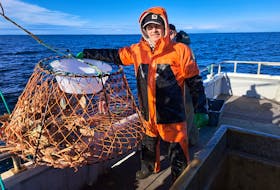In his letter of Nov. 24, entitled “Churchill Falls judgement isn’t a loss but an opportunity for debate,” Michael Gardiner outlined four options for the distribution of power from the Upper Churchill on or after 2041 and the need for adequate discussion for action before the current contract with Hydro-Québec ends.
There may be more than four options, but at least the current discussion of these four options is a good beginning.
1. A first option involves a discussion with Hydro-Québec. The discussion may end up in one of three ways.
(a) Hydro-Québec may decide it is not worth it to pursue another contract with CFLCo. Hydro-Québec has had enough of what it considers bad verbiage and insults from the people of Newfoundland and Labrador and the governments of Newfoundland and Labrador over many decades. Hydro-Québec will not make another deal with CFLCo. At that point CFLCo. has up to 5,428 megawatts (MW) to distribute, and not through the province of Quebec. Further, Hydro-Québec demands payment for its withdrawal from CFLCo. (34 per cent interest).
The cheapest alternative to distribute most of this 5,428 MW power is through the island of Newfoundland and on to Nova Scotia. This will involve installing extra cables under the Strait of Belle Isle, upgrading the landline on the island of Newfoundland and extra underwater cables to Nova Scotia. Cost unknown at present.
(b) Hydro-Québec may decide it is worthwhile to pursue another contract with CFLCo. There may be conditions attached — for example, Hydro-Québec may charge a distribution rate for transfer of electricity through Quebec (20 cents per kilowatt hour and may demand a 49 per cent interest in CFLCo. and may demand at least 80 per cent of the electrical power generated. Take it or leave it!
It would be unlikely that Hydro-Québec would settle for a short-term contract (less than 20 years) for the initial reason given in 1.(a) above.
(c) The federal government may enact a law or laws governing distribution of electricity throughout Canada — a national grid, if you will. Costs for this province and other provinces to be part of a national grid, unknown at present.
The development of further hydro power such as at Gull Island would add further electrical capacity.
2. It may be in Newfoundland and Labrador’s best interest to opt for 1.(a) as that would mean this province would have complete control of all of the Upper Churchill power. We would control our own destiny.
Labrador might be given a high priority in economic development. This province could subsidize the electrical power to new industries in Labrador to the extent of 50 per cent and up to a maximum of five years. The extra income taxes of workers and business taxes would offset some or all of the subsidized electricity.
Excess electricity would be sold to the mainland or for further economic development on the island of Newfoundland or both.
3. The development of further hydro power such as at Gull Island would add further electrical capacity. Low interest rates would encourage such a project. Also, the experience gained from developing the Muskrat Falls project would be an asset.
4. The idea of transferring power across the Atlantic is an interesting possibility. To supply electricity to Greenland and Iceland and to Ireland would require overcoming some major obstacles such as icebergs scouring the ocean floor and installing a landline along the south coast of Greenland. Maybe by the year 2041 as a result of global warming there will be no more icebergs!
The above four options do not necessarily coincide with Michael Gardiner’s four options.
I thank Michael Gardiner for his thoughts on electrical developments in this province and encourage him to pursue his thoughts and actions further in that direction.
Ian McMaster
St. John’s

![['Wire stringing on the transmission line crossing the Churchill River at the Muskrat Falls site in Labrador.']](https://saltwire.imgix.net/transmission-lines-across-the-churchill-3127748.jpg?cs=srgb&fit=crop&h=568&w=847&dpr=1&auto=enhance%2Cformat%2Ccompress)







